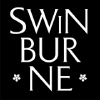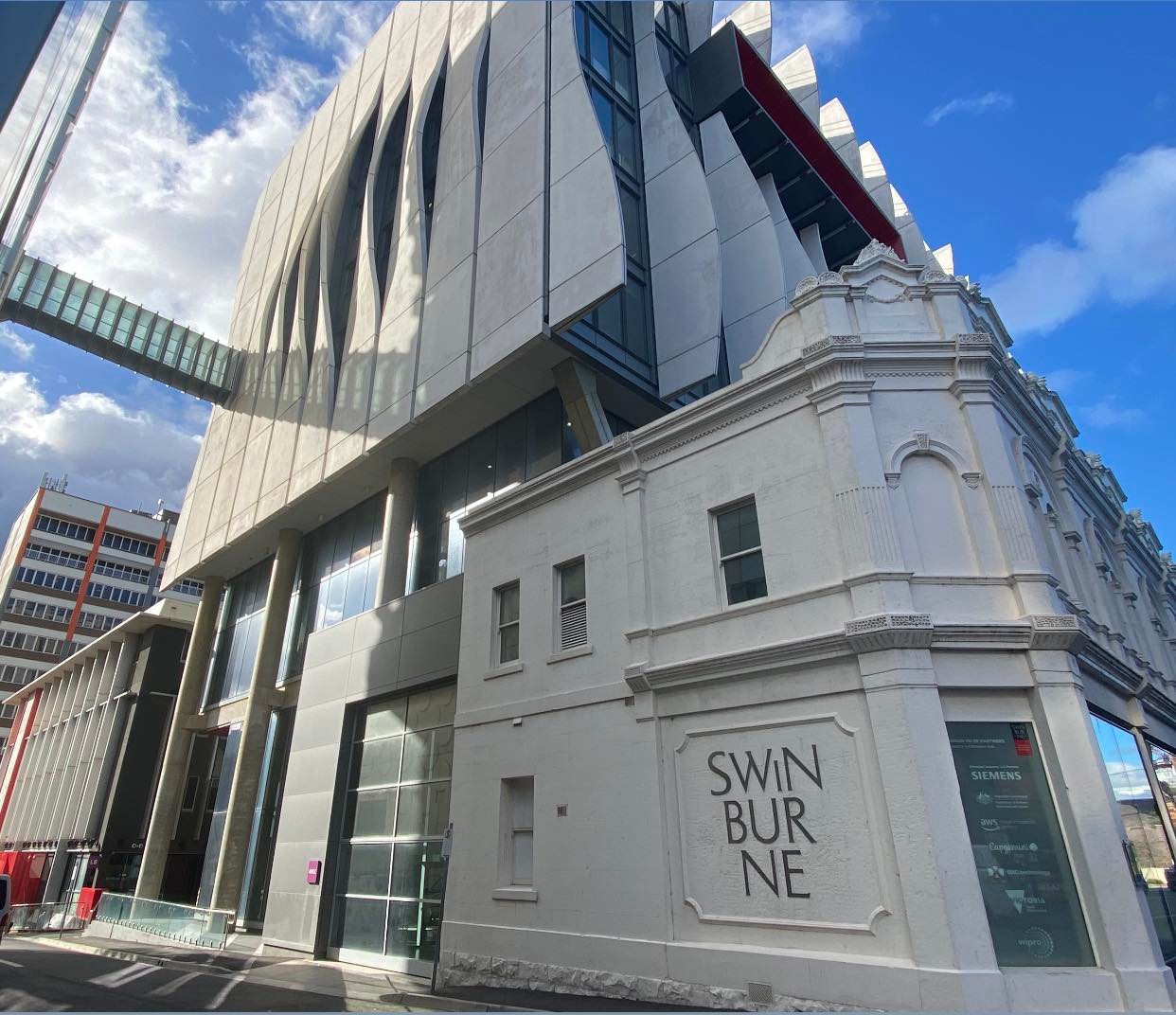John St, Hawthorn VIC 3122, Australia
Career Counselling

Swinburne University of Technology, located in Australia, has an international reputation for world class education and high quality research. It has over 34,500 students, with 85% of the higher education population being undergraduates and 23% being international students, representing over 100 nationalities.
Swinburne University of Technology has five campuses: three in Melbourne (Hawthorn - the main campus, near the city centre, Croydon and Wantirna - suburban campuses, primarily housing vocational training courses), one in Sydney, and one overseas...
| Establishment year | 1908 (University Status 1992) |
| Total Students | 34,500+ (2021; equivalent full time) |
| International Students | 7,935 (2021) |
| QS World University Rankings 2024 | =285 |
| Campus Size | N/A |
| Total Number of Campuses | 5 (3 in Melbourne, 1 in Sydney, 1 in Malaysia) |
| University Website | https://www.swinburne.edu.au/ |
| No. of Schools and Divisions | 6 Schools (Business, Law and Entrepreneurship, Design and Architecture, Engineering, Health Sciences, Science, Computing and Engineering Technologies, Social Sciences, Media, Film and Education) |
| Nobel Prize Winner Alumni | 0 |
| No. of Education Programs | 808 (undergraduate), 206 (postgraduate) |
| Student to Faculty ratio | N/A |
Swinburne University of Technology offers undergraduate and postgraduate courses through 6 Schools, which are further subdivided into Departments, Centres, and Groups.
International applicants to Swinburne University of Technology must meet both academic and English proficiency requirements. Academic requirements for undergraduate courses depend on the programs: international applicants should also look up the minimum required grades in their equivalent Year 12 examinations in their countries of origin. Postgraduate candidates need to submit grades from a recognised undergraduate program at a reputable University: certain courses may mandate prerequisite subjects, interviews, personal statements, or portfolio submissions.
International applicants can satisfy the English proficiency requirements for their courses by submitting recent scores from any recognised test - for example, TOEFL, IELTS, PTE, or Cambridge. Some tests can even be taken online at home: for example, the TOEFL iBT Special Home Edition, and DuoLingo English. The minimum scores required on each test can be found on the relevant course pages.
Domestic undergraduate applicants must satisfy the minimum age requirement (17 years at the time of course commencement) and the minimum academic requirement (based on the Victorian Certificate of Education - VCE - Year 12 performance or equivalent). Individual courses may ask for prerequisite subjects or additional material to be submitted in support of the application.
Domestic postgraduate applicants must submit degree certificates and transcripts from recognised universities in Australia or New Zealand; additionally, their average marks or grade point averages must exceed the minimum mandated for their course of interest. As long as they have spent at least four years studying in Australia or NZ prior to the application, they will not need to submit English test scores.
International applicants to Swinburne University of Technology must all apply through the international application portal.
In addition to personal, academic, and professional data, the following documents will also need to be attached to the online application, wherever applicable:
If assistance is needed with the application, candidates can seek the assistance of Swinburne representatives in their countries.
Domestic undergraduate applicants can either apply directly to Swinburne or via the Victorian Tertiary Admissions Centre (VTAC) website: either option will allow them to select their courses of interest, though in the former case, the candidates will need to be sure that their Australian Tertiary Admission Rank (ATAR) exceeds the minimum for the courses they are applying for.
Domestic postgraduate applicants use the same direct link for application; there are more relaxed deadlines as submissions are typically open most of the year.
Swinburne University of Technology maintains a database of approximate international student tuition fees for both undergraduate and postgraduate students.
For international UG students, annual tuition fees can range from $31,000 per year (Arts and Social Sciences) to $42,180 per year (Psychology Honours).
For international PG students, the range of tuition fees is $28,200 per year (Communication Technologies) to $44,320 per year (Master of Engineering).
Undergraduate local students at Swinburne have their tuition fees partly paid by the Australian Government through the Commonwealth Supported Place (CSP) scheme. The student contribution fee in CSPs is one of these band amounts, with all courses falling into one of the following bands: $4,128, $8,301, $11,800, and $15,142.
Almost all postgraduate domestic students pay Domestic Tuition Fees for their courses; these are much higher than the student contribution amounts that all undergraduates pay, but are usually about 20% lower than international PG tuition fees. Exact numbers can be found on individual course pages
In addition to tuition fees, the University also charges a Student Services and Amenities Fee, capped at a maximum of $326 for 2023.
Swinburne also maintains a helpful page that helps calculate total living costs from accommodation, travel, food, personal, and entertainment expenses: as an indicative number, the University recommends budgeting between $25,000 and $32,000 per year.

Swinburne University of Technology has five campuses in total: three in Melbourne, one in Sydney, and one in Malaysia. Hawthorn is the main campus. Located ten minutes from the Central Business District of Melbourne, it has world class learning facilities in addition to bars, cafes, restaurants, and student accommodation options. The scenic Croydon campus is located next to a National Park, and is home to many of the vocational Trades programs at the University. The Wantirna campus, located in the eastern suburbs of Melbourne, has specialist horticulture and nursing facilities. The beautiful Sarawak campus in Malaysia offers a salient mix of the most popular courses of the University, primarily drawn from technology, business, and engineering. The green Parramatta campus, located in a satellite city of Sydney, offers several postgraduate courses. Swinburne is also home to the National Institute of Circus Arts.
The location of three of the five campuses of the University within the city of Melbourne ensures that students have access to a huge range of gyms and aquatic locations. For example, Swinburne has a partnership with the Hawthorn Leisure and Aquatic Centre by which students can access the pool for free. The University's ID card is also good for massive student discounts at multiple world class gyms in and around the city.

There are many ways for students at Swinburne University to get involved in sports at varying levels of time commitment and skill. At the grassroots level, there are several sports clubs that serve as social networking and athletic skill improvement mechanisms. The best athletes at the University represent Swinburne in InterVarsity league competitions, at the Division 1 and Division 2 levels. Finally, the University is home to a host of Elite Athletes, whose prodigious talents entitle them to sports scholarship programs, with special guidance on how to balance regular sporting responsibilities with academic commitments in order to complete their degrees successfully.
The Careers and Employability Service at Swinburne helps students create career plans, find jobs, and achieve success by converting interview calls. The SwinEmploy online hub contains career resources, workshop and networking event schedules, and job postings. This serves to organise all the activities related to careers on campus. The Career Start online program is primarily used by students of the University to optimise resumes and simulate interviews. Building industry experience is already a part of the curriculum through the Work Learning course modules. Finally, the Professional Purpose program is meant for undergraduate students; it runs in parallel with their degrees and helps them explore different careers until they find the best fit for their unique combinations of skills and interests.
Swinburne University of Technology is committed to providing access to financial aid to meritorious students across a wide range of skills, and to enhancing equity outcomes by extending opportunities to disadvantaged and underrepresented groups. Over 100 internal and external scholarships are provided by the University.
Domestic students who have financial difficulties can apply for the Study and Living Support Grants: Multiple scholarships can be awarded, and they all contribute $2,000 per awardee towards tuition and housing.
In terms of widening access, the prestigious CitiPower, Powercor and United Energy Women in Engineering Scholarship awards $10,000 per year for up to 3 years to a female student whose major of study is Electrical Engineering. This is available only to domestic students (from Australia or New Zealand). The criteria for selection are primarily academic performance and a personal statement.
There are five scholarships reserved for international students at Swinburne; all applicants are automatically considered for these at the time of application, and awarded the highest scholarship that they are eligible for:
A full list of scholarships, along with filters that enable visitors to source awards by country of eligibility, country of origin (domestic / international), and school / area of study, can be found on the relevant University web page.
